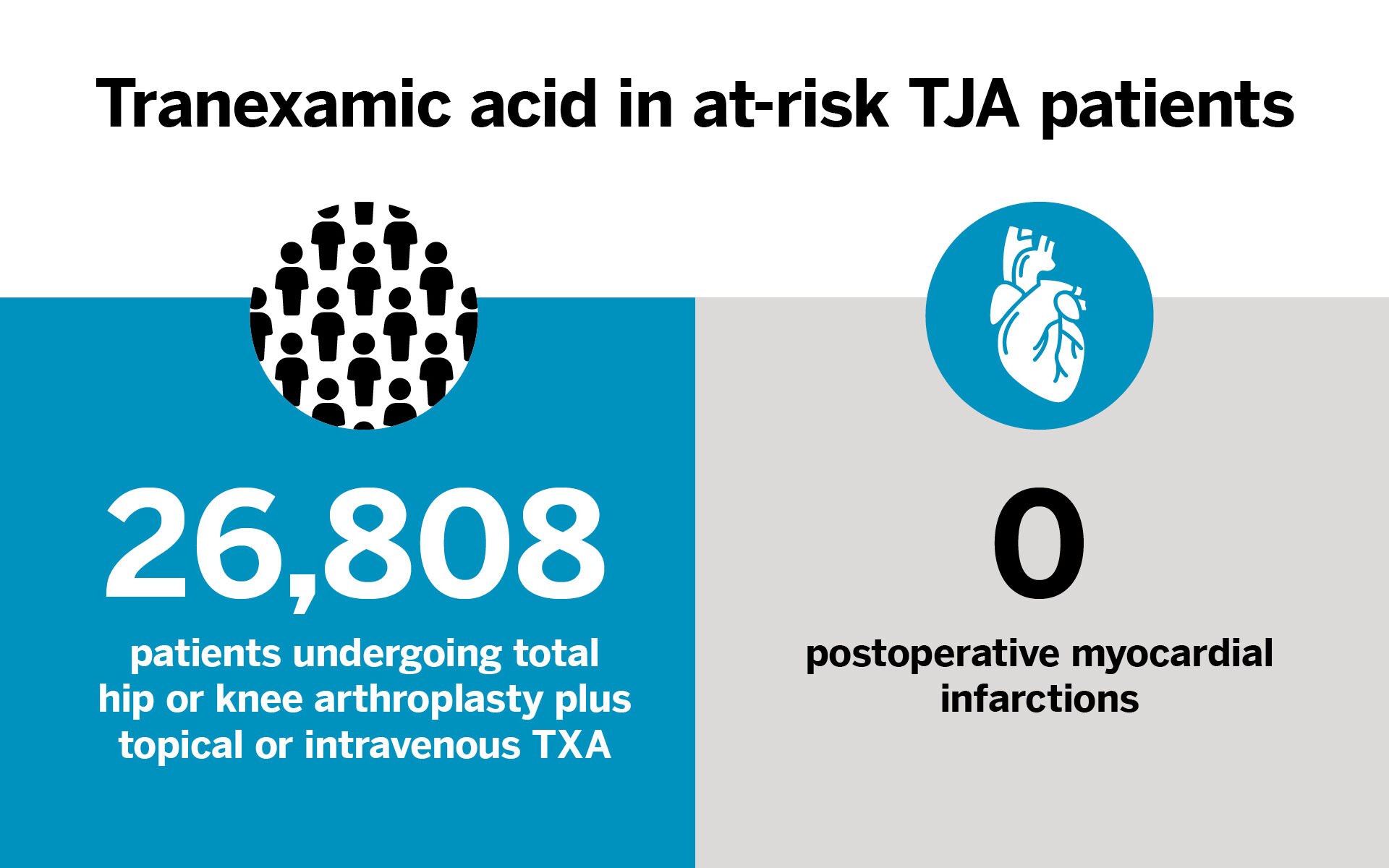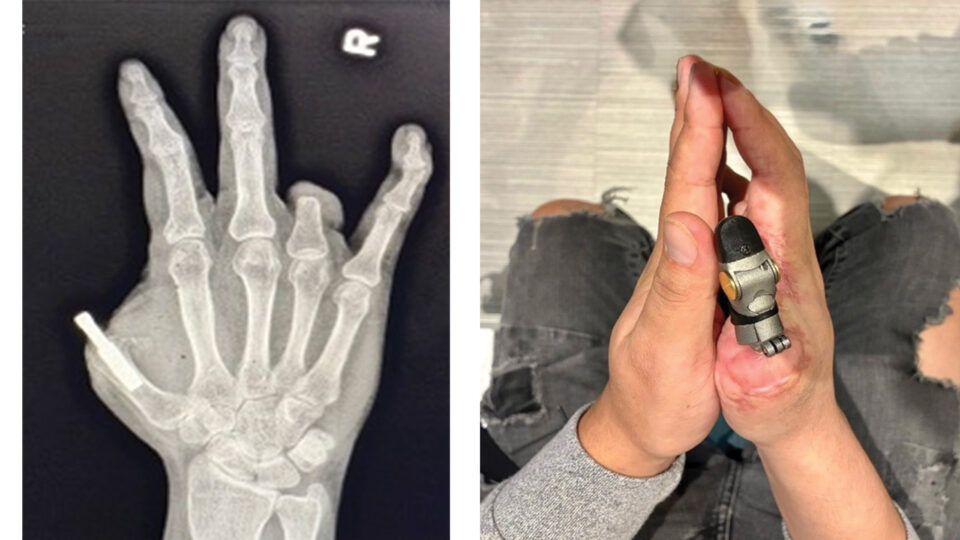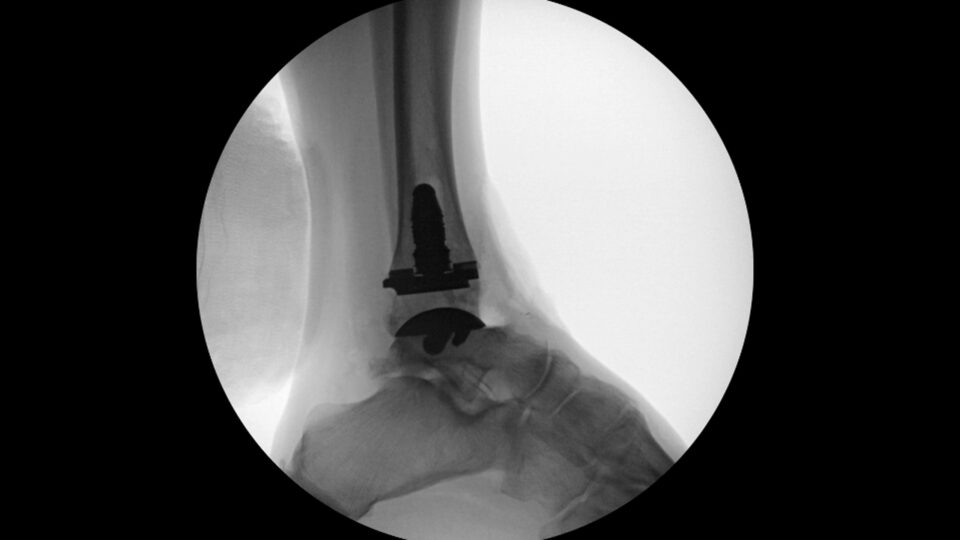| Orthopedic surgeons have increasingly used tranexamic acid (TXA) as a highly effective intervention for minimizing blood loss during total joint arthroplasty (TJA). Many surgeons, however, have questioned whether TXA might increase the risk for myocardial infarction and venous thromboembolism (VTE) among TJA patients with a history of coronary artery disease (CAD) or coronary stents. Ran Schwarzkopf, MD, a professor or orthopedic surgery, and colleagues conducted a retrospective analysis of total hip or knee arthroplasty patients, all of whom received either topical or intravenous TXA. Their study in the Journal of Bone & Joint Surgery found no instance of postoperative myocardial infarctions among the at-risk patients, and no significant differences in the rate of VTEs, regardless of the patients’ history of CAD or coronary stents. Furthermore, they saw no significant differences in VTE rates regardless of whether TXA was administered intravenously or topically. Given that both TXA applications minimize blood loss and are equally safe for all TJA patient populations, the researchers recommend intravenous TXA because of its potential for easier implementation. |
“This essential work supports our continued use of tranexamic acid among all our total joint arthoplasty patients, and helps us achieve better results and outcomes for patients.”
Ran Schwarzkopf, MD
“This essential work supports our continued use of tranexamic acid among all our total joint arthoplasty patients, and helps us achieve better results and outcomes for patients,” Dr. Schwarzkopf says.






